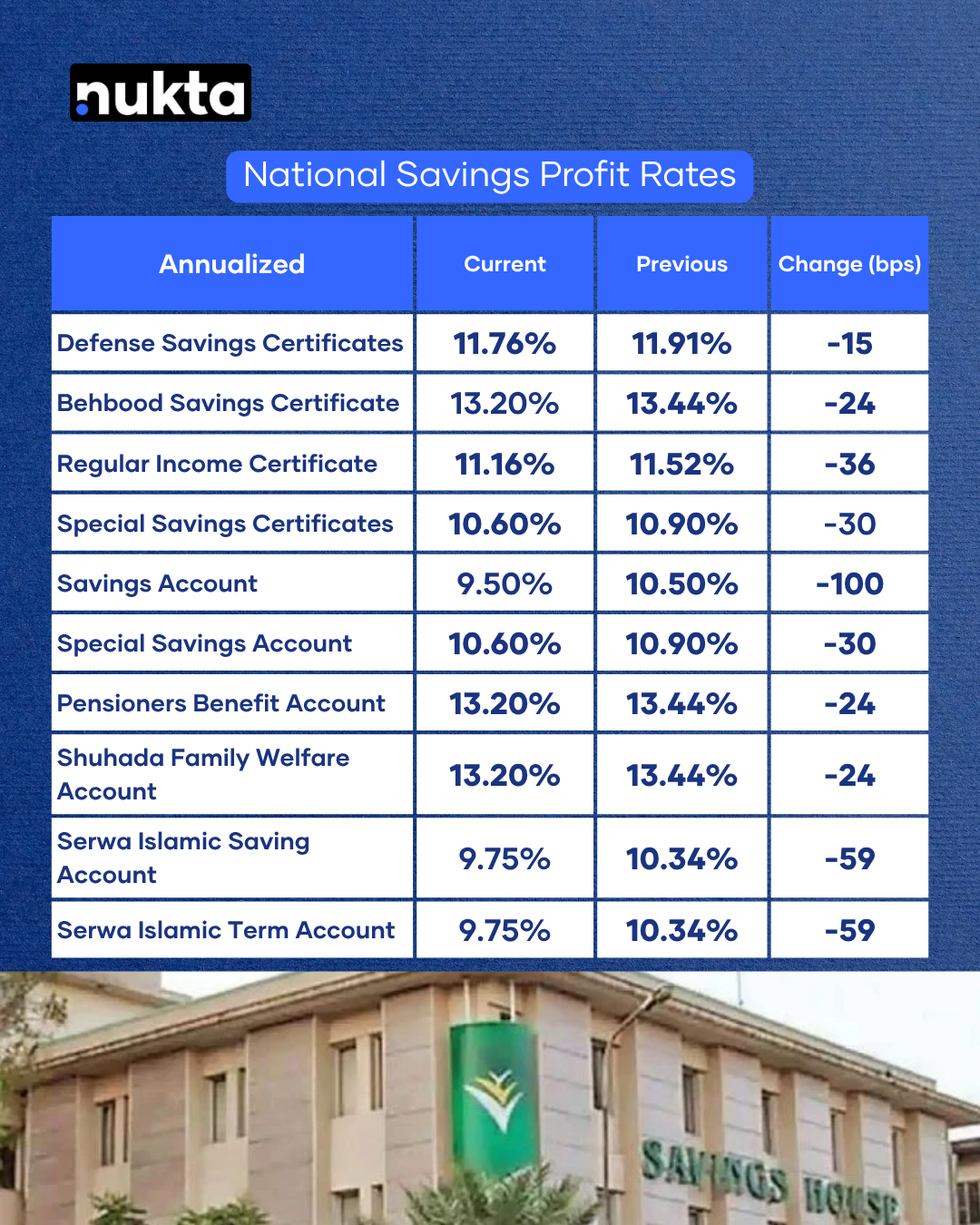Pakistan slashes returns on National Savings Schemes
CDNS trims rates across key instruments including Bahbood, Pensioners, and Defense Certificates
Business Desk
The Business Desk tracks economic trends, market movements, and business developments, offering analysis of both local and global financial news.

Photo by towfiqu999999 via Unsplash
Pakistan's Central Directorate of National Savings (CDNS) has trimmed the rates of return across several of its flagship National Savings Schemes (NSS).
According to a CDNS document received by Nukta, while the Saving Account held steady at 9.50%, much of the rest of the portfolio wasn’t spared.

Defense Saving Certificates, traditionally seen as a stable long-term option, dipped by 15 basis points (bps) to 11.76%, down from 11.91%.
The revision rippled across the board. Bahbood Savings Certificates, a favorite among retirees and widows, fell by 24bps to 13.20%.
Pensioners Benefit Account and Shuhada Family Welfare Account — both critical to Pakistan's most vulnerable populations — were also shaved down to 13.20%, marking an identical 24bps reduction.
Regular Income Certificates dropped 36bps, now offering 11.16%. Special Savings Certificates declined by 30bps, settling at 10.6%.
Meanwhile, Serwa Islamic Saving Account and Serwa Islamic Term Account both saw notable decreases of 59bps, bringing their new return rates to 9.75%.
Though modest on paper, these cuts may carry greater weight for everyday savers navigating a challenging inflationary environment.
With the State Bank of Pakistan managing reserves and broader macroeconomic tools, the CDNS' decision suggests a coordinated effort to gradually normalize returns and align savings incentives with the country’s evolving fiscal landscape.
The total portfolio of these savings certificates, including prize bonds, currently stands around PKR 3.2 trillion.







Comments
See what people are discussing